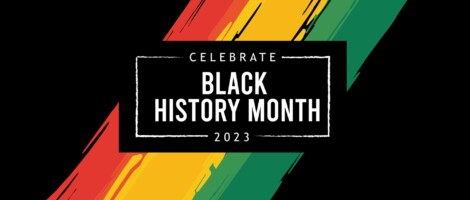The African American church: A catalyst for social change
by Tim Fuller on February 28, 2023 in Cultural Engagement

Editor’s Note: This is the second in a series of posts organized by Texas Baptists African American Ministries celebrating the historical impact and importance of the African American church in conjunction with the observance of Black History Month. Read more about the history of the African American Church here.
The African American church historically and theologically has always been concerned about social transformation as well as spiritual transformation. The African American church was crucial during slavery in helping slaves cope, confront and combat slavery and saw parallels between their situation and the situation of the children of Israel who were in Egyptian bondage for 400 years. They believed, just as God delivered the children of Israel from bondage, He would deliver them.
Ministers like Nat Turner, Denmark Vesey and Fredrick Douglas were prominent in the abolition movement. Their involvement, especially the work of Fredrick Douglas, reached the ears of then President Abraham Lincoln. President Lincoln understood the power and prominence of the Black church with respect to the issues of slavery. In August 1862, Lincoln invited five Black clergymen to the White House to discuss emancipation.
On Dec. 31, 1862, African American churches started “watch night services.” The traditional “watch night service” was not about celebrating the end of one year and bringing in the new year, but on the contrary, it was about freedom. The churches prayed, sang songs and anxiously awaited the hour The Emancipation Proclamation would take effect. The Emancipation Proclamation stated “all persons held as slaves in the rebel states shall be henceforward and forever free.” Just like the children of Israel, the Negroes were free, but they had to spend the upcoming years in their own wilderness.
After the Civil War, the United States was compelled to do something with the recently freed slaves. William Tecumseh Sherman met with the Black Clergy on Jan. 12, 1865 in Savannah, Georgia. The group consisted of 20 Baptist and Methodist ministers, including Baptist Pastor Garrison Frazier, who became their spokesman. The United States, being compelled by Frazier, agreed to give the former slaves 40 acres. (This is where we get the 40 acres and a mule.)
The U.S. began Reconstruction. Even though the slaves had freedom, it did not provide them a sense of dignity and value, especially in the eyes of whites, whether they were from the north or south. The fight for freedom continued all throughout Reconstruction, Jim Crow and segregation. The fight took on a different flavor during the Civil Rights Movement.
Although there have been many organizations and institutions that were change agents in the African American community during the Civil Rights Movement, the biggest catalyst for social change was through the African American church. It was more than just altruistic; the social change was based in Scripture. The African American church took seriously the Scriptures that addressed issues of justice. They believed in Micah 6:8, where God told the nation of Judah: “He has shown you, O man, what is good. And what does the LORD require of you? To act justly and to love mercy and to walk humbly with your God.”
In Martin Luther King Jr.’s famous speech, “I Have a Dream,” he exclaimed, Let justice roll down like water and righteousness like a mighty stream.” Black clergy understood those words did not originate with Martin Luther Kingbut with the prophet Amos (Amos 5:24). Amos and other biblical prophets like Micah, Jeremiah and Isaiah knew religion was much more than ceremonies and “pomp and circumstance,” it was living righteously regarding your neighbor.
As Carl Ellis writes in his book, Free At Last? The Gospel in the African-American Experience, “The quest for righteousness in every area of life must be on top of the African American agenda if we are to become the people God created us to be.” Based upon that understanding, African American clergy, along with their churches, formed numerous organizations to address issues of racism, discrimination and oppression.
Organizations like the Urban League and the NAACP were influenced by Christian ideology. Other organizations like the Congress of Racial Equality (CORE) and the Student Nonviolent Coordinating Committee (SNCC) had ties to the church. In 1957, Martin Luther King Jr., along with 60 other prominent clergy and religious leaders in Atlanta, Georgia, formed the Southern Christian Leadership Conference (SCLC). The SCLC was committed “to bring about the promise of one nation, under God, indivisible together with the commitment to activate the ‘strength to love’ within the community of humankind.”
America and her racial problem have made great strides toward equality and justice, but the struggle is not over. African Americans believe we must all learn from history. As George Santayana writes in The Life of Reason, “those who cannot remember the past are condemned to repeat it.” Those words ring true even today.
Tim Fuller is the African American Ministries specialist at Texas Baptists. Learn more about the ongoing work of Texas Baptists African American Ministries.
Strengthening a multiplying movement of churches to live out the Great Commandment and Great Commission in Texas and beyond.
The ministry of Texas Baptists is made possible by giving through the Texas Baptists Cooperative Program, Mary Hill Davis Offering® for Texas Missions, Texas Baptists Worldwide and Texas Baptist Missions Foundation. Thank you for your faithful and generous support.
Subscribe to receive stories like this one directly to your inbox.
We are more together.